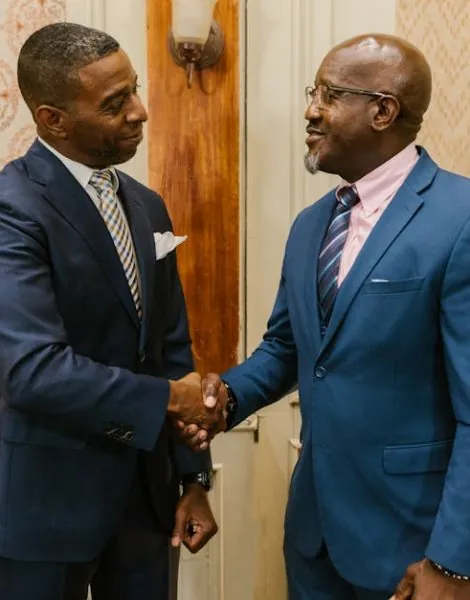In a world where power dynamics can shift faster than a cat video goes viral, understanding diplomatic leverage is crucial. It’s not just about who has the biggest military or the flashiest economy; it’s about the art of persuasion and the subtle dance of negotiations. Imagine having the ability to influence decisions without breaking a sweat—sounds like a superpower, right?
Table of Contents
ToggleOverview of Diplomatic Leverage
Diplomatic leverage refers to a nation’s ability to influence others through a combination of negotiation, persuasion, and relationship-building. Strong relationships with allies enhance this influence, as trust often leads to more successful negotiations. Countries utilize various strategies to exert diplomatic leverage, with economic tools and political alliances ranking among the most effective.
International cooperation plays a key role in shaping diplomatic leverage. By participating in multilateral organizations, nations can amplify their voices and promote shared interests. Influence grows when leaders engage in constructive dialogue and prioritize transparency, fostering an environment of trust.
Another factor in diplomatic leverage involves soft power, which encompasses cultural influence, values promotion, and public diplomacy. Nations that invest in cultural exchanges can improve their global image, enhancing their ability to persuade others. The effectiveness of soft power often becomes evident in international negotiations, where cultural understanding can break down barriers.
Data illustrates that soft power significantly impacts public perception and international relations. According to the 2021 Soft Power Index, countries like Canada and New Zealand holds top positions, showcasing the value of diplomatic leverage. Investment in education, humanitarian aid, and cultural initiatives strengthens a nation’s global standing.
Through these elements, effective diplomacy emerges as a fusion of strategy, communication, and interpersonal skills. As global dynamics evolve, harnessing diplomatic leverage becomes essential for nations seeking to navigate complex geopolitical landscapes. Each decision made by international leaders reflects the importance of maintaining influence and fostering collaboration in achieving shared goals.
Key Components of Diplomatic Leverage
Understanding the core components of diplomatic leverage is essential for nations seeking to enhance their influence on the global stage. Three primary aspects contribute to a country’s ability to persuade and negotiate effectively.
Economic Influence
Economic power significantly impacts diplomatic leverage. Nations often use trade agreements and sanctions to influence other countries’ policies. Tools like foreign aid create dependencies, strengthening ties with recipient countries. Countries with robust economies attract foreign investments, ensuring greater negotiation power. For instance, the United States and China leverage their economic strength to shape global trade policies. Economic influence fosters collaborative ties that lead to favorable agreements and positions in international discussions.
Military Power
Military capability also plays a critical role. Nations with strong defense forces can deter aggression and project power. Strategic alliances, such as NATO, amplify a nation’s military influence and facilitate collective security arrangements. Military power serves as a bargaining chip in negotiations, providing countries leverage in diplomatic discussions. States like Russia leverage military presence to assert influence in regional conflicts. While military strength is not the sole factor, it underscores a nation’s capacity to protect its interests and secure favorable outcomes.
Cultural Appeal
Cultural appeal enhances diplomatic leverage through soft power. Nations promote cultural exchange, education programs, and public diplomacy to cultivate a positive global image. By showcasing cultural values and social norms, countries can build connections that transcend traditional diplomacy. For example, countries like Canada and New Zealand invest in soft power initiatives, resulting in higher rankings on the Soft Power Index. Cultural appeal fosters mutual understanding, making nations more persuasive in international dialogues. Each aspect of cultural influence contributes to a comprehensive strategy for leveraging diplomatic relationships.
Case Studies of Diplomatic Leverage
This section highlights significant examples of diplomatic leverage in action, showcasing both successful and failed attempts.
Successful Examples
The Iran nuclear deal underscores a successful use of diplomatic leverage. Negotiators from the United States and several allies engaged in extensive talks to limit Iran’s nuclear program. This collaboration resulted in a framework aimed at reducing potential nuclear threats, showcasing the effectiveness of coordinated diplomacy. Another example comes from the relationship between Canada and China, where economic interdependence enhanced Canada’s influence in negotiations on climate change. These instances illustrate how well-crafted relationships and strategic negotiations can yield positive outcomes in international relations.
Failed Attempts
Nations occasionally misjudge their diplomatic power, leading to significant failures. The U.S. invasion of Iraq in 2003 serves as a prominent example. Despite military strength, the lack of effective post-war diplomatic strategy resulted in long-term instability. Another notable failure is the lack of consensus in the COP15 climate talks in 2009. Delegates struggled to reach an agreement, highlighting the limitations of diplomatic leverage when key players cannot align their interests. These cases reveal that without thoughtful engagement and mutual cooperation, even powerful nations can experience setbacks in their diplomatic efforts.
Strategies for Effective Diplomatic Leverage
Nations can utilize various strategies to establish and sustain diplomatic leverage. Building strong alliances serves as a fundamental approach to enhancing influence. Relationships with other nations can provide mutual benefits, especially in economic or security agreements.
Engaging in multilateral negotiations amplifies a country’s voice. Participation in organizations like the United Nations creates opportunities for collaboration and dialogue on global issues. Countries that prioritize coalition-building may secure broader support in diplomatic initiatives.
Economic incentives often play a pivotal role in diplomatic negotiations. Offering trade agreements or foreign aid can reshape policies and enhance ties with other nations. Effective economic leverage can yield favorable outcomes in international relations.
Incorporating cultural diplomacy into strategy can significantly enhance a nation’s appeal. Countries that promote cultural exchanges foster mutual understanding and goodwill. Investing in arts and education initiatives helps build a positive global image, supporting persuasive efforts.
Developing soft power is essential for nations seeking to improve their global standing. Leaders can project influence by aligning with shared values and promoting stability through democratic principles. Cultivating a reputation for humanitarianism often results in greater diplomatic success.
Utilizing communication effectively remains critical in achieving diplomatic goals. Crafting clear messages and utilizing public diplomacy can sway public opinion and decision-makers alike. Countries that communicate strategically can enhance their negotiating positions.
Emphasizing military deterrence is another strategic approach. A robust defense capability can discourage aggression and bolster bargaining power. Nations with credible military options often find themselves in stronger negotiating positions.
Countries that adapt their strategies based on international dynamics exhibit resilience. Assessing changing geopolitical landscapes allows nations to pivot and seize emerging opportunities. Tailoring diplomatic approaches ensures relevance and efficacy in a complex environment.
Diplomatic leverage is a vital tool for nations aiming to navigate the complexities of international relations. By mastering the art of persuasion and building strong alliances, countries can enhance their influence on the global stage. The interplay of economic power, military strength, and cultural appeal creates a multifaceted approach to diplomacy that fosters collaboration and understanding.
As global dynamics evolve, nations must remain agile in their strategies. Adapting to changing circumstances while prioritizing effective communication and relationship-building will ensure that countries maintain their relevance and influence. Ultimately, the ability to wield diplomatic leverage effectively can lead to meaningful partnerships and successful outcomes in an increasingly interconnected world.









